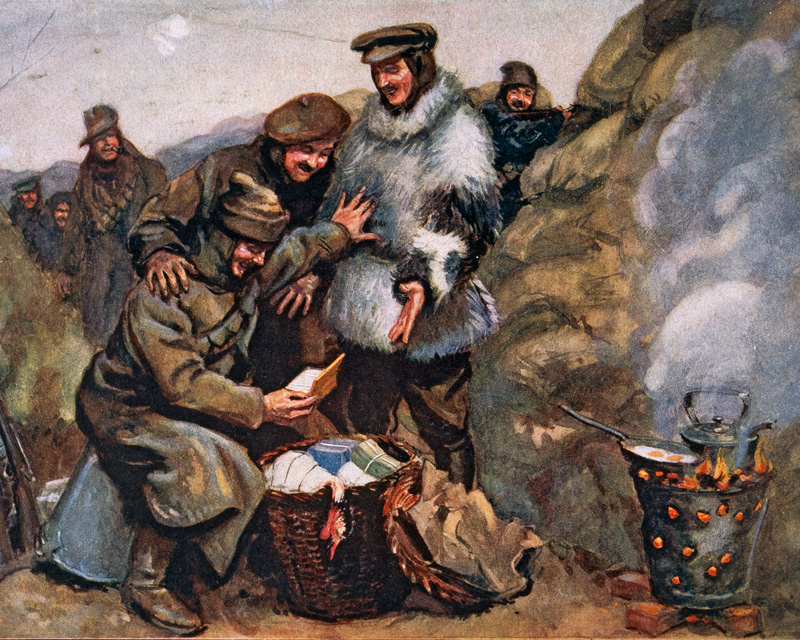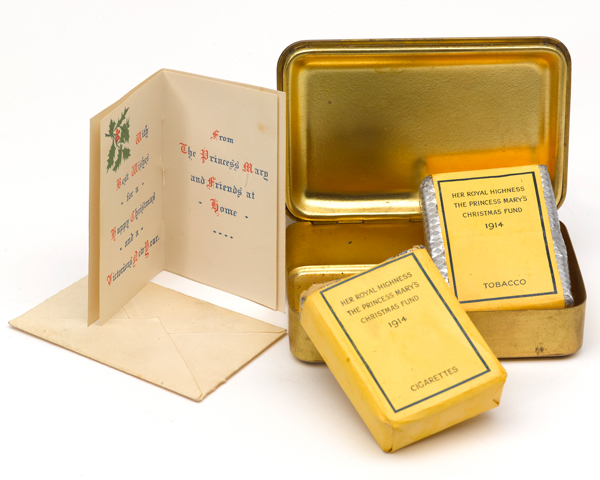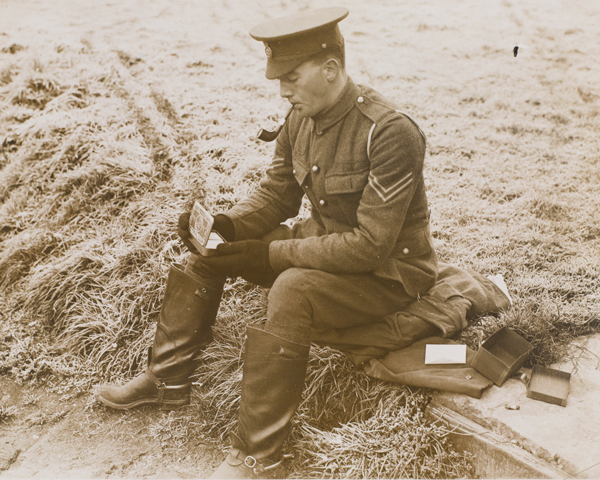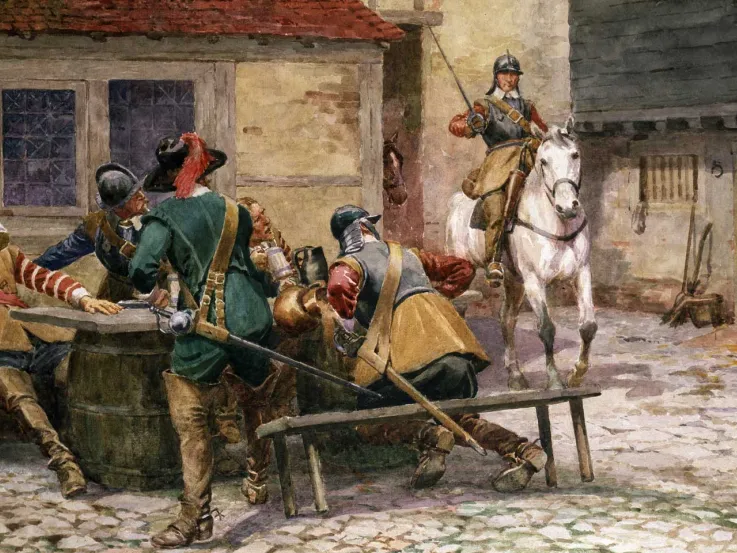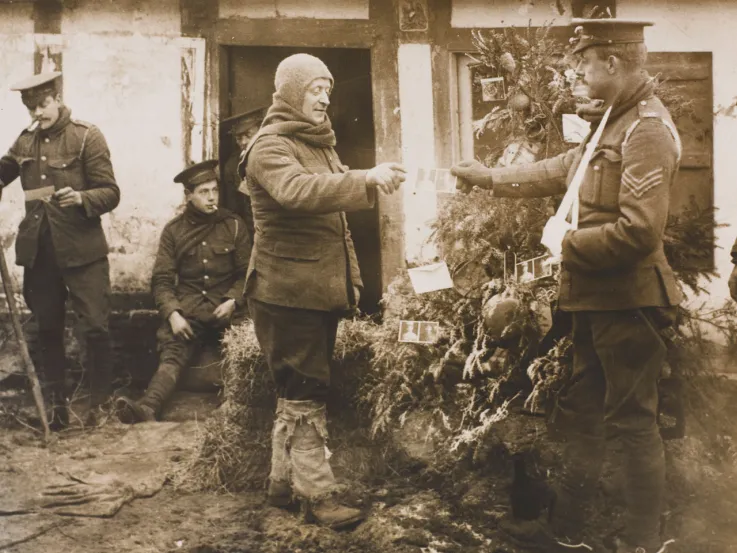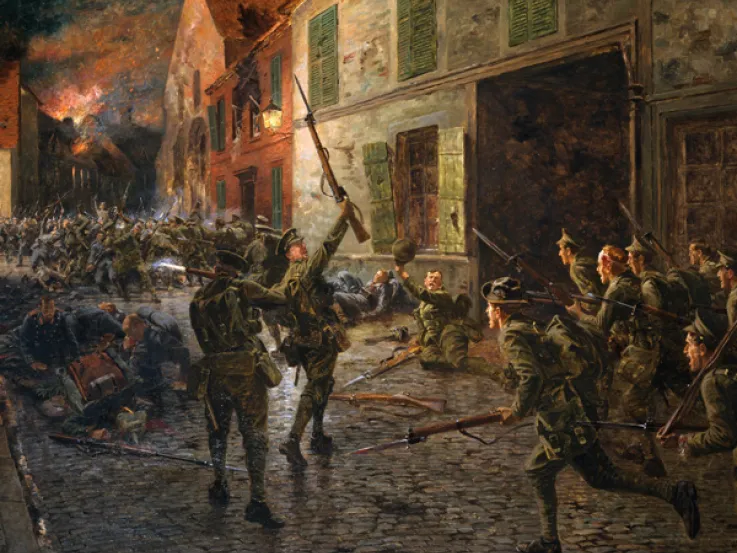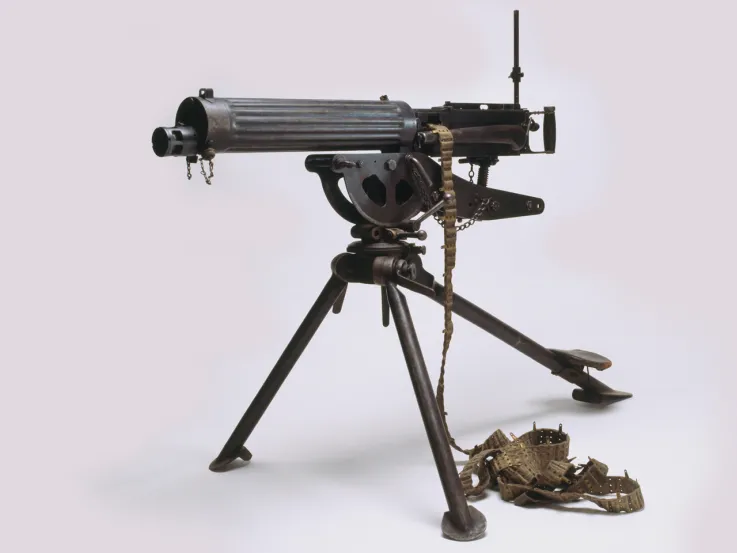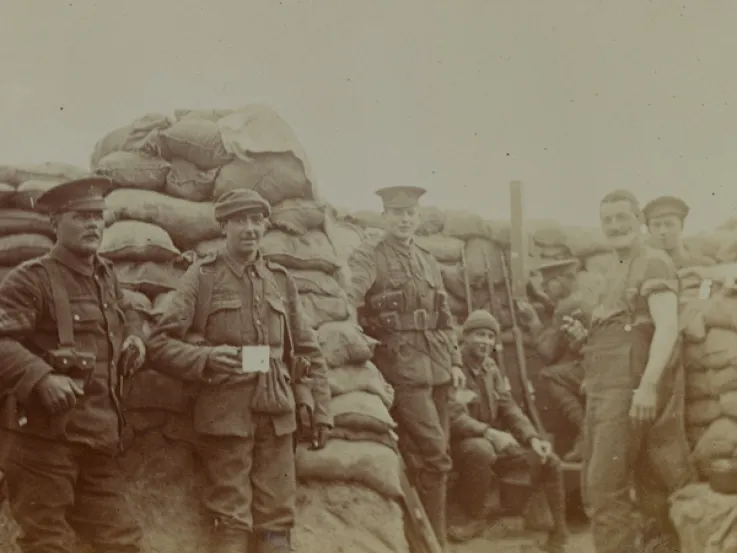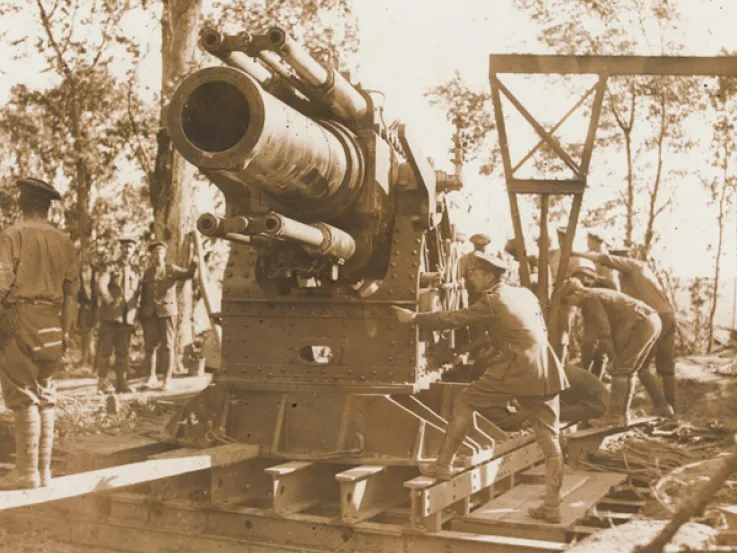Christmas presents
As well as exchanging cards at Christmas time, soldiers received gifts from their loved ones or from charities.
Parcels packed with goods from home improved the morale of those faced with cold and wet weather in the trenches. Tobacco, clothing, sweets and chocolate, plum puddings, reading material and games were all sent to the front.
The great and the good called on people to send gifts. In December 1914, the wife of Field Marshal Sir John French, the British commander-in-chief, asked the nation’s women to knit and post 250,000 mufflers to keep soldiers warm.
Gift tins
The Royal Family sent Princess Mary gift tins to Indian and British troops. These were metal cases engraved with an outline of the princess and filled with chocolates, sweets, cigarettes and tobacco.
The tins also included a picture card of Queen Mary and a copy of King George V's greeting to the troops, which stated: 'May God protect you and bring you safely home.'
Great efforts were made to distribute these gifts. Despite huge demands on an already stretched postal service, more than 355,000 tins were successfully delivered in time for Christmas Day.
Christmas dinner
Those soldiers lucky enough to be away from the front line at Christmas usually had at least a basic Christmas dinner in their billets and dugouts in the reserve areas.
But for the troops manning the trenches, it was the usual rations, possibly supplemented with gifts from home if they were lucky. Often soldiers would share these among their comrades.
This sketch, entitled ‘Tommy’s Christmas dinner’, depicts a disgruntled soldier stuck in a trench with only bully (corned) beef and army biscuit for his Christmas meal.
Other tinned goods consumed on Christmas Day included ‘Maconochie's beef and vegetable stew', a concoction that had more fat and gristle than meat. The notoriously hard biscuits could crack teeth unless soaked in tea or water beforehand.
'On Christmas Eve we have a short voluntary service and communion in a bell tent, very strange singing “peace on Earth” and off to kill all we can early next morning… We had a few comforts given out, including a piece of Christmas pudding… Our Colonel wishes us a happy Christmas and we move away into the night, passing other bodies of troops moving off, with artillery rumbling along... We have a cessation mid-day for our Christmas dinner, bully and biscuits.'Private William Bowyer — 25 December 1915
Christmas Truce
The most famous Christmas act of the war was the truce of 1914. Unofficial ceasefires between British and German soldiers took place along parts of the front. In the trenches on Christmas morning, carols were sung and rations thrown across the opposing lines.
It was not long before the more adventurous soldiers started to venture into no-man’s land. Here, they exchanged food, tobacco, cigarettes, drink, badges, buttons and caps. Games of football even broke out. The only result recorded was a 3-2 victory by the Germans, quoted in several soldiers’ letters.
As well as exchanging gifts, both sides saw the lull in fighting as a chance to find the bodies of their comrades and give them a decent burial.
'As darkness came on lights were seen in the German lines in the Rue du Bois, at first our fellows fired at them and the Germans put them out - gradually the firing died down, and all the enemy sniping ceased. The silence was almost uncanny and we were all very suspicious and extra vigilant, expecting some trick. Later on... their whole line was illuminated. I think they had hoisted lanterns on tall poles on their parapet and in their trenches. After they began to sing... They sang beautifully the whole effect was weird in the extreme. They then started shouting across to us, which we replied. 'I think everyone felt very homesick on Xmas Eve. Thoughts of our families at home were uppermost in our minds. The night passed without a shot being fired on either side. Our sentries were however extra vigilant and I felt quite uneasy at the strange silence… [In the morning] the Germans started shouting remarks across the lines which at first were not complimentary afterwards they shouted greetings such as “good morning Englishman, a merry xmas, you no shoot, we no shoot”. There was no shooting all day.'Major J Q Henriques, The London Regiment — 24-25 December 1914
A return to hostilities
In some sections of the front, hostilities officially resumed early on Boxing Day. In other areas, the ceasefire lasted for several days.
Although the high command of both sides issued strict orders against fraternisation, many junior officers tolerated the truce and allowed events to take their own course. They never doubted that the fighting would eventually resume in all its fury.
Indeed, for the rest of the war, there was to be no major repeat of the 1914 truce. This meant that the event acquired semi-mythical status. Ever since, it has been celebrated as a rare glimmer of humanity in a brutal conflict.
Listen to an account of the truce
Interviewed in 1991, George B Jameson MC recalls his experience of the Christmas Truce while serving as a corporal in the Northumberland (Hussars) Yeomanry.


